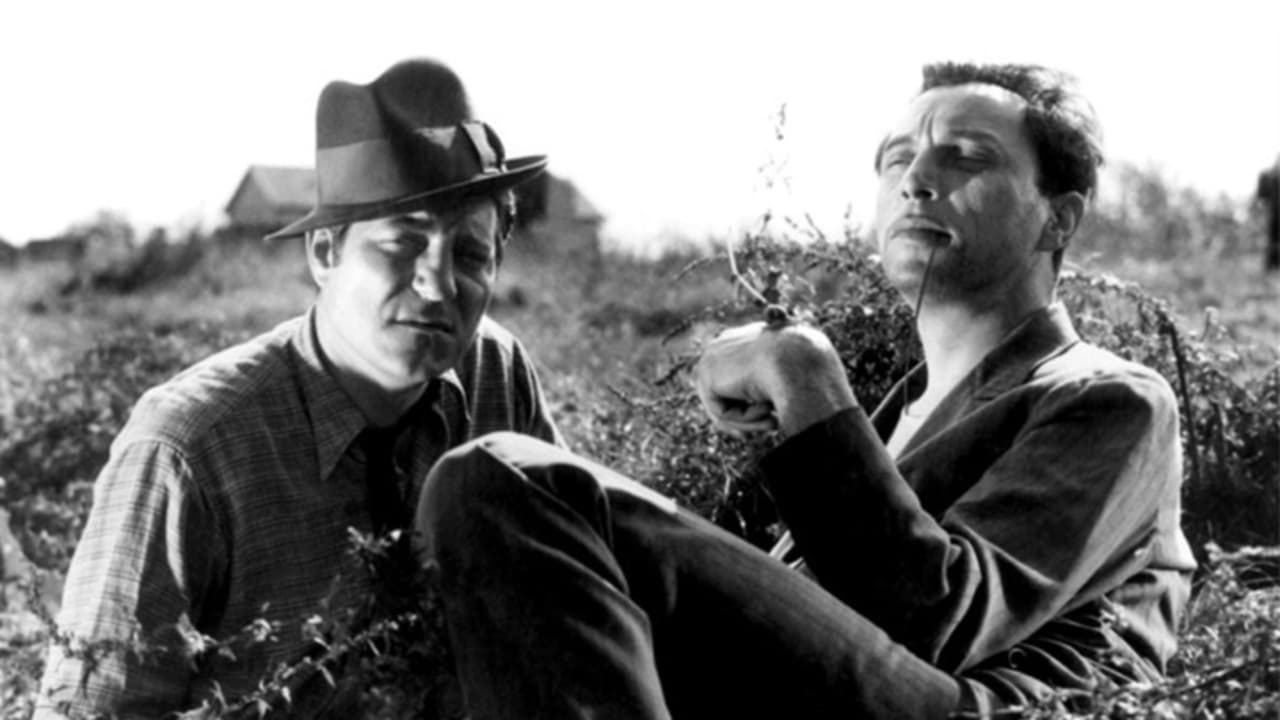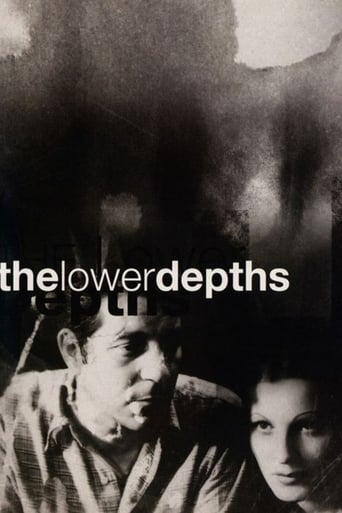CheerupSilver
Very Cool!!!
BootDigest
Such a frustrating disappointment
Celia
A great movie, one of the best of this year. There was a bit of confusion at one point in the plot, but nothing serious.
Isbel
A terrific literary drama and character piece that shows how the process of creating art can be seen differently by those doing it and those looking at it from the outside.
popcorninhell
A funny thing happened on the way to WWII. In the midst of the Great Depression, hard-nosed political leftists all around Europe found themselves in a panic over the rise and consolidation of power of Nazi Germany. While Hitler was quietly rounding up Socialists and Communists all across the Rhineland, the French artistic intelligentsia found themselves utterly agog with the Russian economic and social experiment. The news had not yet sunk in that Stalin's Russia was just as dysfunctional, but what artists like Jean Renoir and Maximilen Luce did know was exiled socialist writer Maim Gorky had been accepted by Stalin to much fanfare in 1932. Perhaps as a form of unification, Renoir directed Gorky's play "The Lower Depths" to the screen.The Lower Depths stars Jean Gabin as Pepel a miscreant who lives in a flophouse, in a crime-infested neighborhood by the Maine River. He plans to rob the Baron (Jouvet), an almost defiantly casual nobleman with a penchant for high-stakes gambling. When Pepel enters the Baron's home, the Baron finds him and tells him because of his debts, he's in-fact just as poor as the would-be thief. After multiple run-ins with each other and the law, the two develop a friendship that grows, as a love triangle at the flophouse threatens to consume Pepel.The love triangle involves Pepel, the landlord Kostylev (Sokoloff) his wife Vassilissa (Prim) and Natasha (Astor), Vassilissa's sister. Within the confines of the flophouse the pieces of class struggle are set with Natasha promised to a slovenly police inspector to further complicity of the tragic events to society at-large. The Baron stands outside of the proceedings, absorbing everything though too engrossed with the measly card games of the shacks denizens to pay too much mind. Unlike in Gorky's play, where the Baron seems uncomfortable wallowing in poverty, here the Baron seems liberated. He has no care for the material trappings of his former title. He just wants to distract himself with gambling.Distraction seems to be a reoccurring theme in The Lower Depths. Many characters, instead of becoming disheartened by their situation, take heart with distractions such as cooking, gambling, idle entertainment, lofty unrealistic ambitions and religion. Vassilissa insists that "one day, everything will be ours." Meanwhile Pepel sits idly inattentive to her disillusions. At another point an elderly couple at the flophouse proclaim a Christian faith to Pepel disgust. "When we believe we make it real," says the man before resting on his hardwood bed.Within that scene we get a glimpse into director Jean Renoir's inner thoughts. Unlike Gorky or other proponents of the French Popular Front, Renoir was not a moralist. As he's made plain in later films such as Le Grande Illusion (1937) and The Rules of the Game (1939) he's an excellent observer of human behavior. The Lower Depths proves to be his most pessimistic film but as with all true models of poetic realism, there's still a tiny slimmer of hope.The Lower Depths is Renoir's most accessible comedy/drama providing some interesting insights into human behavior and some excellent acting on the part of Jean Gabin and Louis Jouvet. While some of the humor is a little dated and Junie Astor's performances as Natasha is as vapid as one can see on screen and still not mind, the film is nonetheless a great example of French film during the Golden Age of Hollywood.
MartinHafer
Seeing Maxim Gorky's play about the lowest level of society is an ultra- depressing depressing experience. Everyone is miserable and wretched and the entire production is filled with people who are complete messes. However, in this movie version, director Jean Renoir manages to make the film watchable and quite watchable! How does he do this? Well, he did a great job directed, got some wonderful performances AND used a script that changed the original play--giving it a hopeful and relatively happy ending!! While I usually would never want to see this (such as how they gave happy endings in "The Hairy Ape" and the recent version of "The Scarlet Letter"), in this it was a good thing! Giving the audience something to hope for makes this well worth seeing--not an exercise in masochism! All in all, extremely well made and the best version of the Gorky story I have seen.
funkyfry
Jean Renoir takes us slumming -- everybody should know right off the bat that it'll be fun to be this miserable. There's always that touch of human spontaneity in his films, in his characters, that somehow feels really genuine. The city in his gaze feels truly alive. Jean Gabin in this film is sort of a French Cary Grant, comfortable and strangely admirable in any setting. Of course the centerpiece of the film in terms of its dark comedy is the scene where Gabin breaks into the house of the Baron (Louis Jouvet) to rob him but ends up being his drinking companion instead, and walks off with an equestrian trophy. Baron has lost all his money gambling, and so he says "take it, none of it is mine anyway). Then when the cops bring Pepel (Gabin) to justice, they're mortified by the Baron showing up to accost them for bothering their friend. Quite excellent.Later the two share and idyllic moment on the grass by the side of the river, bringing back again memories of "Boudu" (and premonitions or inspiration for "The Fisher King"?). There is just so little time to get away from the crazy life of the city. Suzy Prim is a heartless pimp for her sister Natacha, who despairs of romance and a moneyed life at the same time.Notably less oppressive and stagnant than the overly theatrical adaptation done by Kurosawa in Japan (both films are based on Gorky's play). I haven't seen the Kurosawa film in a while, but it strikes me that he sought to impress the audience with the stagnation of the characters' lives by making a stagnant film. Instead Renoir gives us the moments in these people's lives when they are in flux, when possibilities for change seem to hang heavy in the air, and thereby gives us the proper contrast to their dire circumstances without making a dire film.Excellent performances from the cast, and Renoir's distinct visual sensibilities are on display in every frame.
deziree
Watch this movie if only to see the soul of Jean Gabin as it plays across his face. Louis Jouvet as the Baron is a marvel of understatement, of course. Beautifully filmed, the world of black and white film is a pleasure, in this movie, to watch. The scenes and the plot remind us of life not so long ago, a life that was harsh and brutal and filled with class divisions, you were wealthy or you were wretched. It made me want to read the original play by Maxim Gorky. Apparently Yvgeny Zamyatin, a long forgotten but brilliant Russian writer, contributed to the screenplay as well. Jean Gabin is a great actor, few people recognize his marvelous talents.

